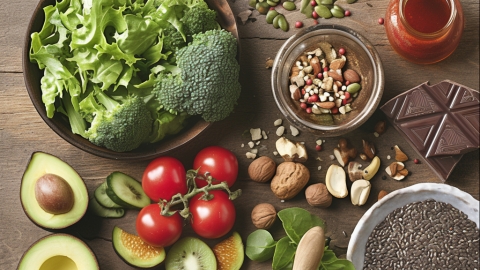What are the dietary considerations for summer?
In general, dietary considerations during summer include choosing light, low-oil foods, appropriately replenishing fluids, ensuring freshness of ingredients, controlling intake of raw and cold foods, and balancing nutritional components. These practices help adapt to summer climatic conditions and maintain physical comfort. A detailed analysis is as follows:

1. Choose light and low-oil foods: High summer temperatures can weaken the digestive system. Excessively greasy foods may burden the gastrointestinal tract and potentially cause indigestion. It is recommended to choose cooking methods such as steaming and cold mixing, and consume more vegetables, coarse grains, lean meats, and other light foods.
2. Replenish fluids appropriately: In summer, the body sweats heavily, leading to rapid fluid loss. Failure to replenish fluids promptly may result in symptoms such as thirst and fatigue. Drink warm water in small amounts throughout the day, and consider consuming mild tea or mung bean soup as appropriate. However, avoid drinking large amounts of water at once, which may dilute gastric juices and impair digestion.
3. Ensure ingredient freshness: Summer's high temperature and humidity promote bacterial growth and spoilage of ingredients. Consuming spoiled ingredients may cause gastrointestinal discomfort. Pay attention to ingredient freshness when shopping, refrigerate promptly during storage, wash thoroughly before cooking, and refrigerate leftovers for consumption within a short period.
4. Control intake of raw and cold foods: In summer, people often prefer raw and cold foods such as cold drinks, ice desserts, and raw pickled items. Overconsumption may irritate the gastrointestinal mucosa, possibly causing abdominal pain and diarrhea. It is advisable to moderate intake of such foods and avoid consuming them on an empty stomach. Individuals with weaker gastrointestinal function should especially reduce consumption of raw and cold foods.
5. Maintain balanced nutrition: Although a light diet is recommended in summer, it is still important to ensure balanced nutrition to avoid nutritional deficiencies caused by excessive pursuit of light meals. Daily meals should include appropriate combinations of protein, vitamins, and carbohydrates to ensure comprehensive nutrition and enhance immunity.
While adjusting your diet in summer, you may also appropriately adjust meal times to avoid heavy meals during peak heat periods. Maintaining regular eating habits and avoiding overeating or excessive dieting will further help adapt to summer conditions and maintain good physical health.




